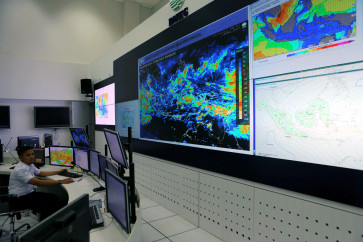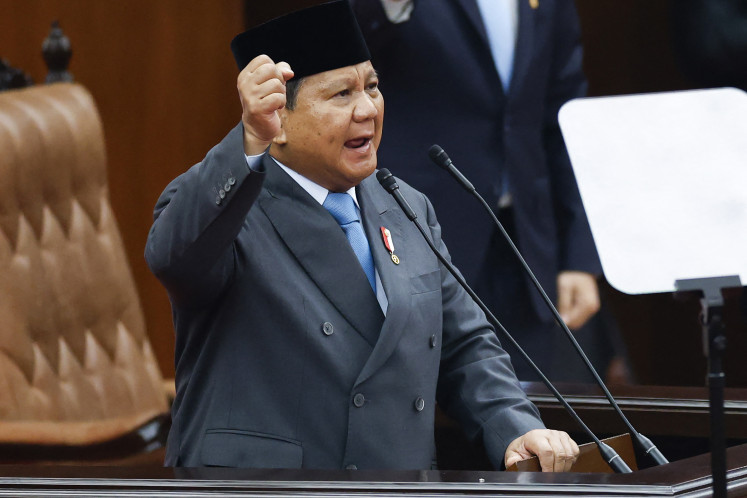Popular Reads
Top Results
Can't find what you're looking for?
View all search resultsPopular Reads
Top Results
Can't find what you're looking for?
View all search resultsGovt spending on infrastructure ‘too small
Indonesia may suffer a slowdown in its economic expansion if the government continues to allocate too small a budget for proper infrastructure development, analysts have warned
Change text size
Gift Premium Articles
to Anyone
I
ndonesia may suffer a slowdown in its economic expansion if the government continues to allocate too small a budget for proper infrastructure development, analysts have warned.
“Imagine a small-engine car that is forced to speed beyond its engine capacity,” Gadjah Mada University economist Tony Prasetiantono told The Jakarta Post in a recent interview.
“Sooner or later, the car will lose pace because the infrastructure for its engine is not equipped to run at such speed.”
In the 2013 state budget, the government has earmarked Rp 193.8 trillion (US$20.24 billion) for capital expenditure mostly on infrastructure development, only about 2 percent of the country’s gross domestic product (GDP), far lower than the minimum amount needed to support the country’s economic growth.
Throughout Yudhoyono’s presidency, the government has never allocated more than 3 percent of the country’s state budget for infrastructure, while economists and international financial agencies such as the World Bank have suggested that a country as big as Indonesia needs to allocate at least 5 percent of its state budget for infrastructure.
Critics have pointed to the fact that a large portion of state funds is instead allocated to energy subsidies, which will account for Rp 274.7 trillion this year and are regarded by analysts as benefitting the haves rather than the have-nots.
The surge in fuel subsidies is attributed to the government’s failure to raise subsidized fuel prices by 30 percent earlier this year. The government’s proposal to raise the fuel price was rejected by the House of Representatives in April.
Tony argued that the government’s lack of attention to spending money on key infrastructure, such as power plants or roads, might lead Indonesia to experience a situation similar to that which is currently happening in India where economic growth declined to 5.3 percent, its slowest pace in nine years.
He said that India’s economic slowdown was caused mainly by the lack of spending in capital expenditure, citing as an example India’s recent nationwide blackouts.
Aside from the lack of infrastructure spending, concerns have arisen over the widening current account deficit of $6.9 billion, or 3.1 percent of GDP, the highest in more than a decade, mostly due to soaring imports.
While Bank Indonesia (BI) has kept its monetary policy loose by holding its benchmark rate at a historic low of 5.75 percent for seven consecutive months, it has been wary of the possibility of overheating in the economy.
“We have extremely high credit growth compared to other countries in the world ... there may be overheating [in the economy] if this continues,” BI Governor Darmin Nasution said.
Indonesia’s credit growth had exceeded 23 percent over the last three years, Darmin said, adding that such figures needed to be reduced to avert overheating in the sector.
Indonesia’s economy surpassed analysts’ expectations by expanding 6.4 percent in the second quarter this year thanks to strong domestic consumption by its 240 million population.
The country has set a growth target of 6.8 percent in 2013. (sat)










